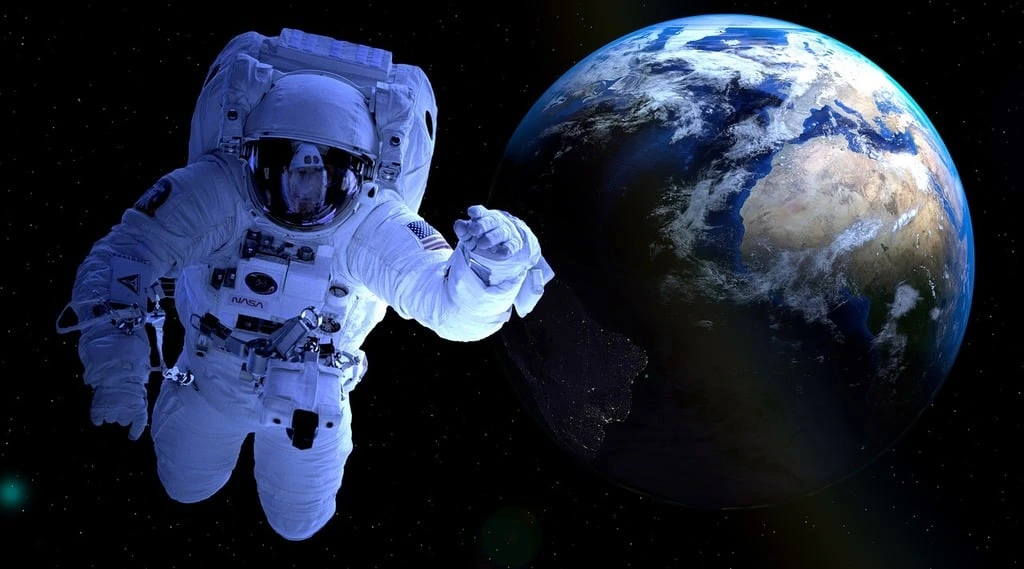Forever seen as pioneers of space exploration by their very nature, astronauts reach beyond the atmosphere of the earth in their quest to find those unknown mysteries lurking in the cosmos. But what does an astronaut do on a daily basis, and how do the cutting-edge tools of Google AI enable such technology-riddled space missions? This is what comes to light in the following article where astronauts turn out to be multitaskers, with devices set to make it all possible, mainly brought to their work by Google AI.
Whether you are going to be interested in space travel or plan your future in space exploration, this book will provide you an all-around view of an astronaut’s life and work.
What Does an Astronaut Do?
An astronaut carries out a lot of activities both before, during, and after a space mission. Their duties are usually grouped into three: preparation, mission execution, and post-mission analysis. Let’s break down the activities.
1. An Astronaut Do Google AI Training and Preparation
Astronaut training is very heavy and can continue for years. The main are:
- Physical Exercise: Astronauts develop endurance as well as resistance to the stresses from space travel during intense physical work-outs.
- Simulations: They train under simulated mission circumstances using flight simulators, simulated spacecraft, or zero-gravity environments such as underwater training
- Learning Science and Engineering: Through the study of spacecraft systems, robotics, scientific experiments, Astronauts have to learn enough to operate devices.
- Emergency Preparedness: They learn techniques to survive in case of any emergencies, for example, such as spacecraft malfunction or re-entry troubles.
2. Execution of the Mission
During a space mission, astronauts:
- Conduct Experiments: They carry out scientific experiments meant to study effects of microgravity on materials, biology, and technology.
- Operate Spacecraft: Pilots operate and control spacecraft systems, but the mission specialists concentrate on their experiments and equipment
- Perform Spacewalks: They also call it extravehicular activities or EVAs, during which they repair equipment, install new instruments, or test technologies.
- Keep the Spacecraft in Working Condition: Periodic checking and servicing ensures that the spacecraft and equipment operate at their best.
3. After the Mission
After landing on Earth, astronauts:
- Share Lessons Learned: They provide insights from their experiences through briefings to the space agencies and outreach and education for the public.
- Rehabilitation: They undergo physical therapy to regain their weight-bearing capacity.
How Google AI Assists Astronauts
- Artificial intelligence: Plays a very important role in space exploration. Google AI, with its advanced algorithms and data processing capabilities, assists astronauts and space agencies in various ways:
- Data Analysis: Google AI helps process vast amounts of data collected during space missions, accelerating insights from experiments and observations.
- Navigation Support: AI-powered systems optimize spacecraft routes and monitor environmental conditions to ensure safe travel.
- Predictive Maintenance: AI algorithms can predict potential problems in spacecraft systems, and astronauts can then do preventive maintenance.
- Training Simulations: Google AI develops realistic virtual environments to prepare astronauts for complex scenarios.
- Space Communication: AI improves real-time communication between astronauts and mission control by reducing signal delays and improving translation tools for international teams.
Why Are Astronaut’s Roles Evolving?
Space exploration is going from government-funded missions to being a commercial undertaking. Companies such as SpaceX and Blue Origin now venture into this field. Because of this transition, the scope of astronauts has expanded to the following:
• Space Exploration Beyond Earth’s Orbit: Exploration missions to Mars and beyond entail new requirements: the operation of sophisticated robots and autonomous decision-making.
• Sustainability Initiatives: Astronauts study ways to build sustainable habitats for long-duration space missions.
Through Google AI, astronauts can have more time for innovation and problem-solving and less hours on routine activities, thus improving the chances of success in their mission.
Conclusion
So, what do astronauts do? From the rigorous training on Earth to conducting groundbreaking experiments in space, their work is both challenging and rewarding. With advancements like Google AI, astronauts are better equipped than ever to push the boundaries of human exploration. Whether you dream of becoming an astronaut or are simply fascinated by space, understanding their role provides a glimpse into the future of space exploration.
Read Also: AI Advantage Notion ChatGPT: Unlock the Ultimate AI Power for Your Success
Frequently Asked Questions: What Does An Astronaut Do Google AI?
Astronaut candidates usually require a bachelor’s degree in a STEM field, and then extensive experience or advanced degrees. Physical fitness and excellent problem-solving skills are also required.
They train in an underwater environment, in parabolic flights (also known as “vomit comets”), and in the simulated spacecraft to in-space conditions.
They conduct experiments ranging from studying human health in microgravity to new material testing and cosmic phenomena observation.
Google AI helps astronauts analyze data, enhance navigation, predict maintenance needs, and improve communication systems.
Common challenges include physical strain, isolation, radiation exposure, and the psychological effects of confined spaces.
Life of an Astronaut: A Day in Space An astronaut’s schedule is planned while orbiting the Earth. The following are common to a typical day:
Morning Routine: Hygiene, exercise against muscle atrophy, and healthy breakfast.
Work Assignments: Conducting experiments, maintaining spacecraft systems, or preparing for spacewalks.
Exercise: Two hours of daily physical activity to counteract the effects of microgravity.
Evening: Communicating with family, enjoying leisure activities, and reviewing the next day’s tasks.
Despite the demanding schedule, astronauts often describe their time in space as a life-changing experience.

